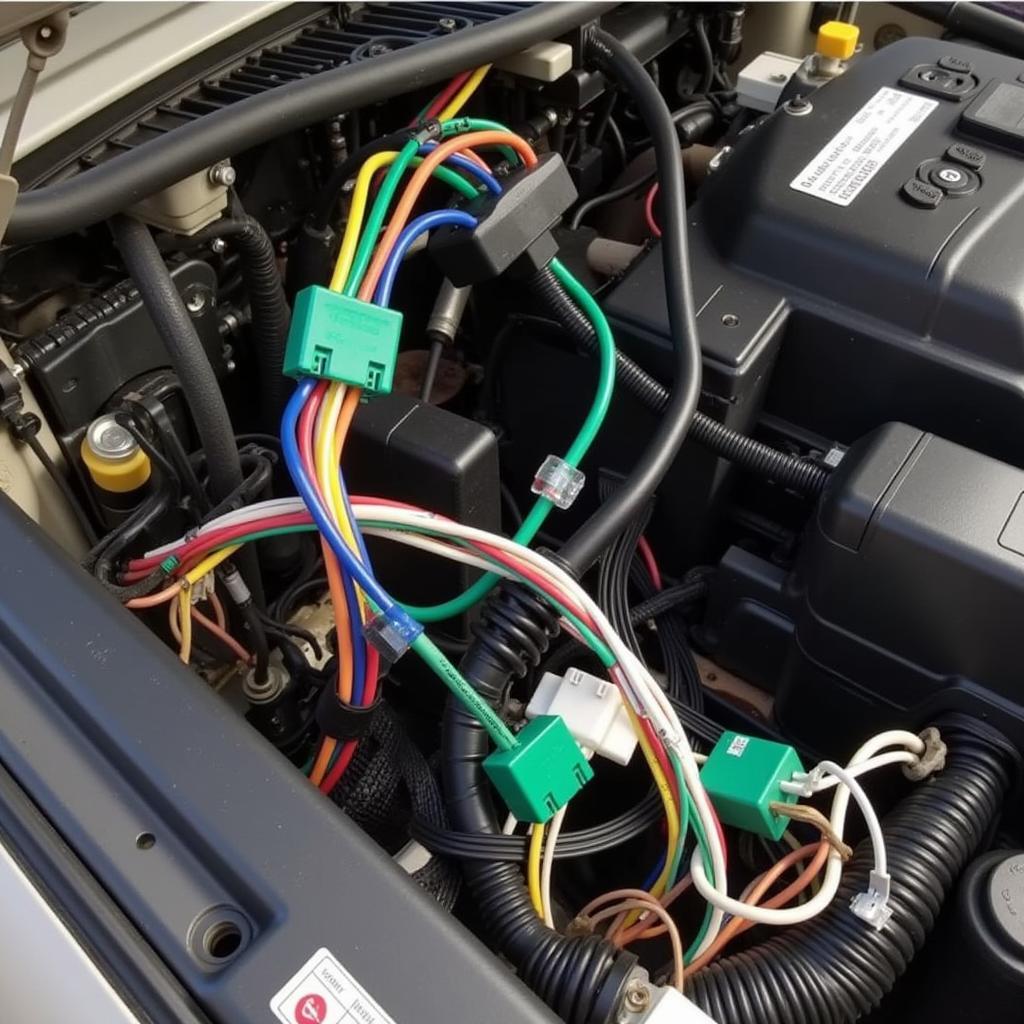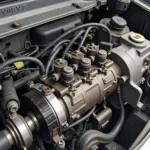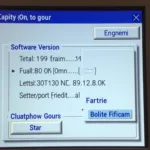Swapping your Integra’s dashboard from the older OBD1 system to the newer OBD2 system can be a tempting project, especially when considering the modern features and diagnostic capabilities of OBD2. This comprehensive guide delves into the intricacies of an Integra OBD2 to OBD1 dash swap, arming you with the knowledge to decide if it’s the right move for you.
Understanding the Difference: OBD1 vs. OBD2
Before diving into the swap, it’s crucial to grasp the fundamental differences between OBD1 and OBD2 systems. On-Board Diagnostics (OBD) is a standardized system that allows mechanics and vehicle owners to diagnose and troubleshoot engine and emission-related issues.
OBD1, found in vehicles manufactured before 1996, utilizes a simpler system with limited diagnostic capabilities. It primarily relies on a single diagnostic connector and offers basic engine data. Conversely, OBD2, implemented in 1996 and later models, boasts a more sophisticated system with enhanced diagnostic features. It utilizes a standardized 16-pin connector, provides access to a broader range of vehicle data, and offers more comprehensive diagnostic trouble codes (DTCs).
Is an Integra OBD2 to OBD1 Dash Swap Possible?
While swapping an entire dashboard from an OBD2 Integra to an OBD1 model is technically challenging and generally not recommended, it’s not entirely impossible. However, it’s not a simple plug-and-play affair and necessitates extensive wiring modifications, ECU compatibility considerations, and potential sensor replacements. The complexity of such a project often outweighs its benefits.
Challenges and Considerations
Embarking on an Integra OBD2 to OBD1 dash swap presents several challenges:
- Wiring Harness Incompatibility: The wiring harnesses of OBD1 and OBD2 Integras are fundamentally different, requiring significant modifications or complete replacement to ensure compatibility.
- ECU Compatibility: The Engine Control Unit (ECU) plays a vital role in managing engine functions and communicating with the dashboard. Ensuring compatibility between the OBD2 ECU and the OBD1 wiring and sensors is crucial.
- Sensor Differences: OBD1 and OBD2 systems utilize different sensors, which might require replacement or adaptation for proper functionality.
- Gauges and Instrumentation: Integrating OBD2 gauges and instrumentation into an OBD1 dash can be complex, potentially requiring custom solutions or aftermarket components.
Alternatives to Consider
Given the complexities of a complete dash swap, exploring alternative solutions that achieve similar goals might be more practical and cost-effective:
- Aftermarket OBD2 Scanners: Investing in a high-quality OBD2 scanner offers a convenient way to access the enhanced diagnostic capabilities of the OBD2 system without modifying the original dashboard.
- OBD1 to OBD2 Conversion Harnesses: These harnesses simplify the process of using an OBD2 scanner with an OBD1 system, bridging the communication gap and providing access to more detailed diagnostic information.
Making the Right Decision
Deciding whether to pursue an Integra OBD2 to OBD1 dash swap is a decision that hinges on various factors, including your technical expertise, budget constraints, and desired outcome.
“While a full dash swap is achievable, it’s a labor-intensive process best suited for experienced individuals with advanced automotive knowledge,” says automotive electronics specialist, Mark Williams. “For most Integra owners, exploring alternatives like OBD2 scanners or conversion harnesses provides a more practical and budget-friendly approach to accessing enhanced diagnostic capabilities.”
Carefully weighing the challenges, alternatives, and potential benefits will guide you toward the best course of action for your Integra.
FAQs about Integra OBD2 to OBD1 Dash Swaps
Q: Can I use an OBD2 ECU with an OBD1 engine?
A: It depends on the specific ECU and engine combination. Researching compatibility is crucial before attempting such a swap.
Q: Where can I find a reliable OBD1 to OBD2 conversion harness?
A: Reputable online retailers and automotive parts stores offer a variety of conversion harnesses.
Q: Will an OBD2 dash swap affect my Integra’s performance?
A: When executed correctly, the swap shouldn’t negatively impact performance. However, improper installation can lead to electrical issues.
Q: Can I do an OBD2 to OBD1 dash swap myself?
A: Due to its complexity, it’s recommended to seek professional assistance, especially if you lack extensive automotive electrical experience.
Q: Is it worth upgrading to an OBD2 dash for the enhanced diagnostic features?
A: Upgrading for diagnostics alone might not be cost-effective. Consider other factors like desired aesthetics or additional features.
Need Help with Your Integra’s Diagnostics?
Contact us via WhatsApp: +1(641)206-8880 or Email: [email protected]. Our 24/7 customer support team is ready to assist you! You can also find helpful information about BMW INPA OBD2 Bluetooth and ELM327 Bluetooth OBD2 Software Windows on our website. For specific error codes, check out our article on OBD2 code P0301. If you’re looking for a universal OBD2 device for programming keys for European cars, we’ve got you covered!


